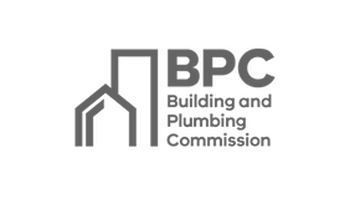Is it worth paying to have my building contract reviewed?
We often hear chatter and see misleading comments on social media such as ‘all building contracts are a standard contract that cannot be changed’, ‘there’s no point getting them reviewed by a solicitor or building consultant’ and ‘the builder won’t change the contract anyways.’
It is important to set the record straight regarding these inaccurate comments, as homeowners who take on board the unsolicited advice are leaving themselves open to risk with one of the biggest investments they may ever make.
We’ll let you in on a common misconception; the builder has most likely already made changes to the ‘standard’ contract, meaning it is no longer a ‘standard contract’. In fact, many builders state on the very first page of the contract ‘This contract has been developed in conjunction with (insert industry association) and is available for use by (insert builder’s name). Some standard terms and conditions have been modified)’.
Standard Contracts… Same-same but different.
A Major Domestic Building Contract is a must-have, legally binding document if you are building a new home. At the time of publishing this article building contracts are required in Victoria if the contract value is over $10,000. It is this document that will always be referred to in the event of a dispute.
Builders will typically use a standard template contract that has been prepared by their industry association, where they add in the job-specific information. These contracts are there to protect consumers and builders alike, however these Associations support their paying members, i.e. builders.
We love standard contracts because they are clear, concise and written in plain English. In Victoria, we see HIA or Master Builder’s contracts most commonly. These may be legal ‘standard’ contracts to an extent; however, builders often dilute the contracts by changing clauses, adjusting payment schedules and adding special conditions, yet still leading the homeowner to believe they are ‘standard’ industry contracts. The homeowner is none the wiser of where changes have been made, nor the significant impact this can have on the protection of their best interests when the contract is compromised.
Builders may explain they’ll send a copy of the ‘standard’ contract for the homeowner to review prior to the final contract being prepared. The blank document they send is in fact the ‘standard contract’ however it does not represent any changes or that the builder may or may not make, list any special conditions that will be added, nor does it show any information that is specific to the build, therefore it is essentially irrelevant.
Typically Watered down and eroded
There are three critical sections of the ‘standard’ building contract that we often find are changed (i.e. watered down) which require careful review:
1. SPECIAL CONDITIONS
The Special Conditions section of the building contract is an area which should be utilised by the builder to give good clarifications to the standard rigid contract. These conditions typically relate to another clause in the contract which they take precedence over. However, we see that many conditions are being added which erode the standard legal rights of the homeowner. Essentially, the ‘standard’ legal contract is being watered down and therefore needs to be carefully reviewed.
The number of special conditions in the contract can be a good indicator of how much the standard contract has been changed. Multiple pages of conditions should sound alarm bells and when there are none, they can be hidden in other contract documents. We recently reviewed a contract that had 85 special conditions, meaning the standard contract has been completely modified.
Don’t get us wrong some special conditions can give good clarity to standard clauses however the majority are generally added in for the benefit of the builder.
2. DEFINITIONS OF STAGES
The definitions of when each progress stage is deemed complete should be clearly outlined in the building contract and should be carefully reviewed prior to signing the contract to ensure that they have not been significantly altered from the standard legal definitions set out in Section 40 and 42 of the Domestic Building Contracts Act 1995 (see snippets below). It is critical that you check the specific contract conditions to ensure they are not contradicting the definition of the standard stages.
There is good cause for concern if the builder is proposing changes to significantly change the standard definitions.




3. STAGE CLAIMS & PAYMENT PERCENTAGES
For a typical build it is important to ensure the percentages of each stage claim are aligned with the standard progress payment percentages.
We’ve written a blog post with information and examples of how stage claims and payment percentages can be altered from the ‘standard’ building contract. Click HERE to read.
There are many logical reasons to have your building contract reviewed before signing it. If you’re looking to enter into a building contract in Victoria in the future, we hope this post has helped highlight some important factors considered in a contract review by an expert building consultant before you sign on the dotted line.
Contact our friendly team about your build, our experienced team of building contract specialists would be pleased to assist with your building contract in Geelong.









